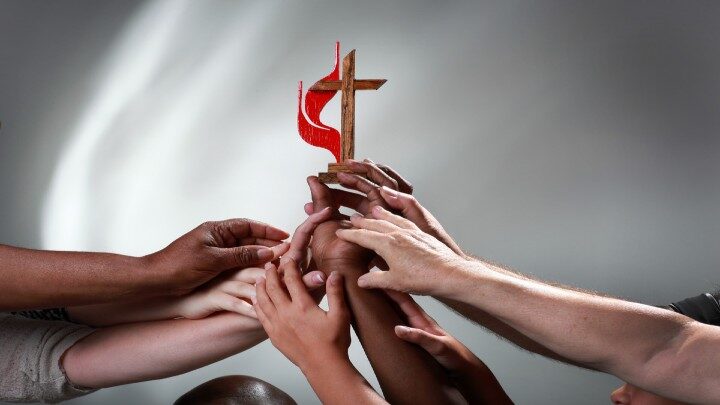What does it mean to be United Methodist? Why should your church #BeUMC?
Many resources are available to lead your church in this conversation. The NC Conference Media Center recommends the books and DVD studies listed below to guide your church in discerning its place within the greater United Methodist Church. Resource UMC has published an excellent resource that you can download for free, #BeUMC: A Discussion Guide.
These resources can be used in small groups, churchwide discussions, and as resources for pastors and individuals. They will educate your congregation and its leaders about
- What it means to be United Methodist
- How to guide these difficult conversations
- The current debate within the UMC
- Ways that we can be the Church together
If your church identifies as traditionalist, consider using this detailed Bible study by the Rev. Dr. John Stephens titled “A Study Series for Traditional United Methodists Who Long to Remain in The United Methodist Church.” It is a free PDF download.
Request These Resources
These resources can be borrowed for free by anyone involved with a United Methodist Church in the North Carolina Conference. We will mail them to your home! All you need to do is fill out the Resource Request Form.
What Does It Mean to be United Methodist?
DVD Studies
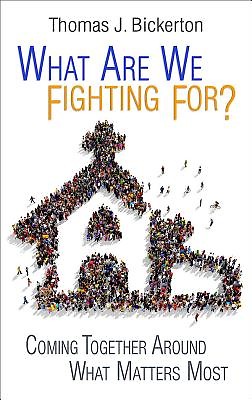

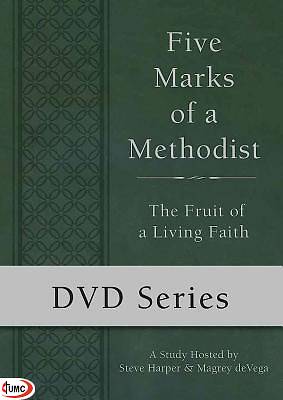
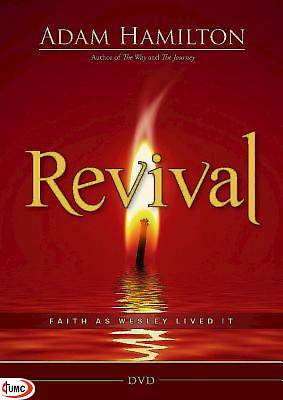
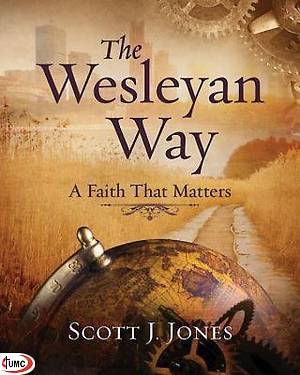
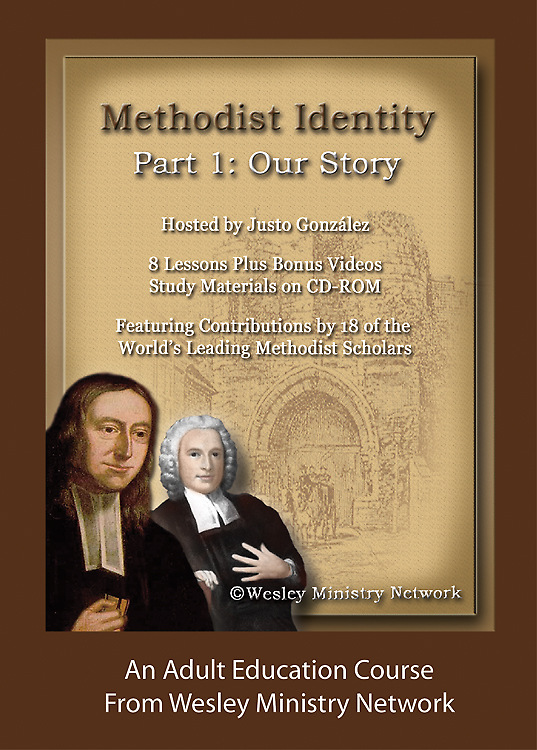
What Are We Fighting For? Coming Together Around What Matters Most by Thomas J. Bickerton. This is not another book full of theories and opinions about what we should do concerning all the issues facing our denomination—quite the opposite. Bickerton offers a way to move beyond all the discord to a hope-filled future by exploring how we can come together around what matters most so that the gospel of Jesus Christ becomes a vibrant part of our lives and witness.
Top 10 United Methodist Beliefs by Don Adams. We know that “the main thing” as a Christian is to love God with our heart, soul, and mind and to love our neighbor as ourselves. Are we as clear on our primary purpose as Methodists? This study offers John Wesley’s point of view on matters of faith. Using his teachings as a guide, the sessions focus on topics including grace, repentance, sanctification, and Holy Love.
Five Marks of a Methodist: The Fruit of a Living Faith by Steve Harper and Magrey R. deVega. These sessions provide extended reflection on the five identifiers that Wesley sets forth in “The Character of a Methodist,” which he published in 1742. Wesley knew that if the Methodist movement was to be established and grow, it must rest upon the solid foundation of gospel characteristics.
Revival: Faith as Wesley Lived It by Adam Hamilton. Join Adam Hamilton as he travels to England, following the life of John Wesley and exploring his defining characteristics of a Wesleyan Christian. This study will deepen people’s faith by calling them to a devout and holy life while defining what the Christian life looks like through the eyes of a Wesleyan Christian.
The Wesleyan Way: A Faith That Matters by Scott J. Jones. Presenting Christianity from a Wesleyan perspective, Jones invites participants into a deeper, more thoughtful, more active commitment to Christ. Each week a different presenter shares their personal faith experience. Presenters include Adam Hamilton, Olu Brown, Felicia Hopkins, Jessica Moffat Seay, Jorge Acevedo, Rob Fuquay, and author Scott Jones.
Methodist Identity hosted by Justo González. This video series explains what it means to be Methodist. The first course includes eight half-hour long presentations by leading Methodist scholars. Speakers describe the 18th-century Wesleyan revival in England and the growth of Methodism in the United States and around the world. Part two examines Methodist beliefs, focusing especially on those doctrines that make Methodists distinctive.
Books

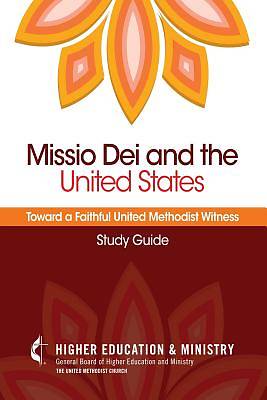
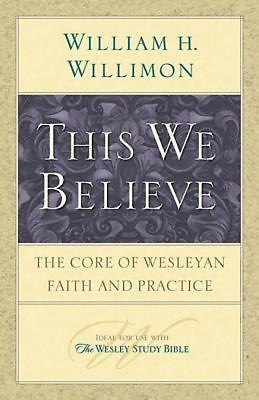
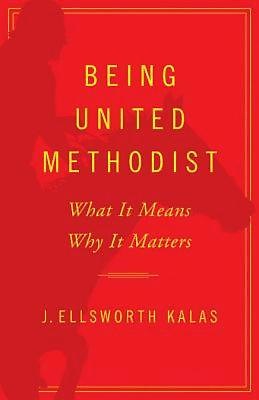
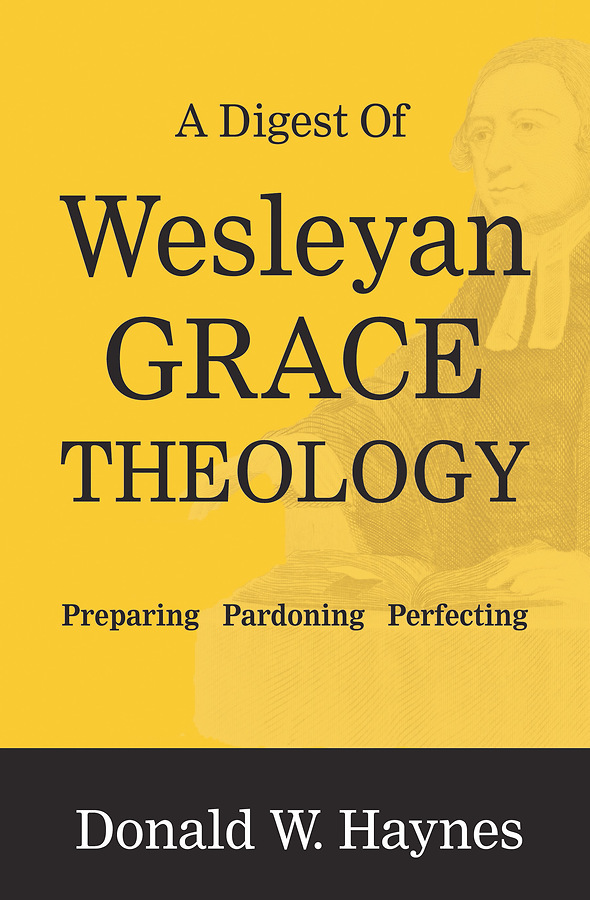
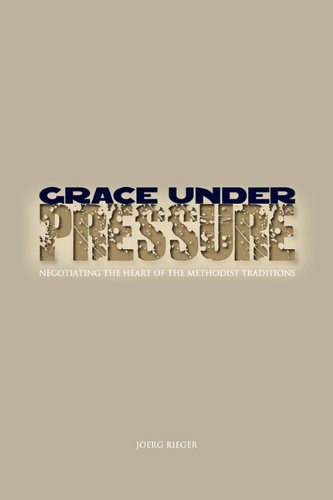
The 19: Questions to Kindle a Wesleyan Spirit by Carolyn Moore. Wesley’s historic questions have been asked of those considered for full connection (ordination) since as early as 1784. Many of these questions were originally used with the people Wesley called “Helpers,” lay men and women to whom Wesley gave responsibility for leadership in the Methodist societies. The questions addressed topics Wesley believed to be essential for persons responsible for leading others in discipleship and mission in the world. The questions around commitment to the rules of the Church have a contemporary urgency in this season of division. Carolyn Moore will thoughtfully unpack each question in a historical and personal way.
Missio Dei and the United States: Toward a Faithful United Methodist Witness. This guide is a resource to help readers take stock of Wesleyan heritage and ask how to best participate in God’s mission for the church. As the U.S. continues to experience changes that are increasingly rapid and drastic, we, as Christians, believe that God is at work in ways that are obvious and mysterious, to reconcile, redeem, save, and recreate humanity along with all creation. Through grace, we must heed the call and take up our purpose to participate in God’s salvific mission. This study is based on the writings produced from a colloquy sponsored by the United Methodist General Board of Higher Education and Ministry and the Association of United Methodist Theological Schools.
This We Believe: The Core of Wesleyan Faith and Practice by William H. Willimon. For John Wesley, the Bible is the joyfully consistent testimony of God’s never-ending grace and ever-seeking love. Likewise, studying the Bible is more than merely knowing what Scripture says; it is also about living every day as a child of God. Beginning with the Core Terms found in The Wesley Study Bible, Bishop Willimon systematically lays out key Wesleyan tenets of faith so that you will have a fresh way to hear God’s voice, share in God’s grace, and become more like Jesus Christ. A Leader’s Guide for this study is also available.
Being United Methodist: What It Means, Why It Matters by J. Ellsworth Kalas. Kalas explores questions such as, Who are these people called United Methodists? Where have they come from, and where are they going? And how is it that so few of them really know what it means to be a United Methodist?
A Digest of Wesleyan Grace Theology: Preparing, Pardoning, Perfecting by Donald Haynes. Donald W. Haynes provides an accessible and comprehensive articulation of the Wesleyan beliefs about the nature of grace and the scriptural way of salvation which led the Wesleyan movement to revive the church and change the world.
Grace Under Pressure: Negotiating the Heart of the Methodist Tradition by Joerg Rieger. Distancing himself from liberals and conservatives but also pointing to the uselessness of a middle way, Rieger explores the theology of grace in situations of human pressure. Following John Wesley in his move to consider the ‘works of mercy’ as part of the means of grace, the author proposes to us a relational concept of grace that will prosper in dialogue and solidarity with those in distress, the oppressed ‘other’ who makes present the gracious ‘Other.’
Guiding Conversations
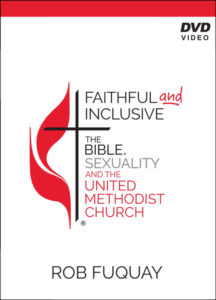
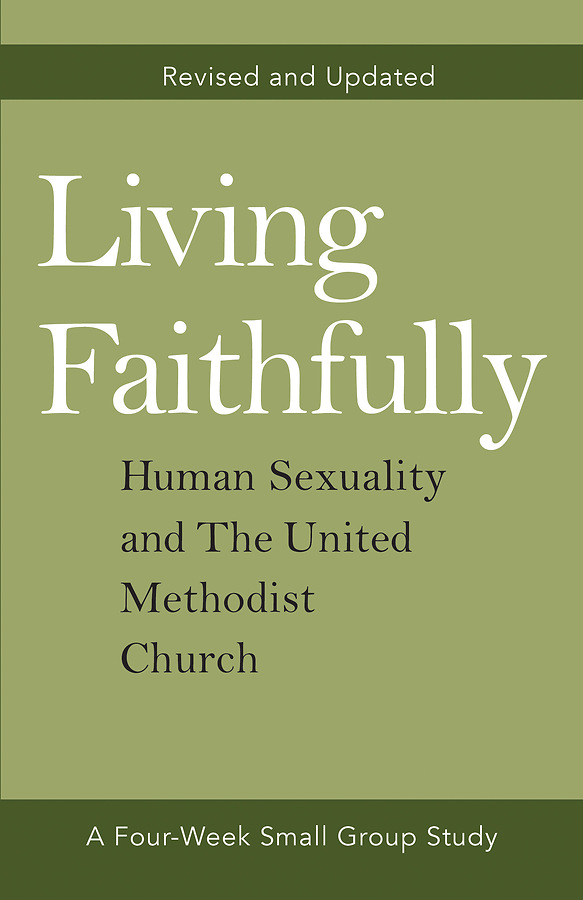
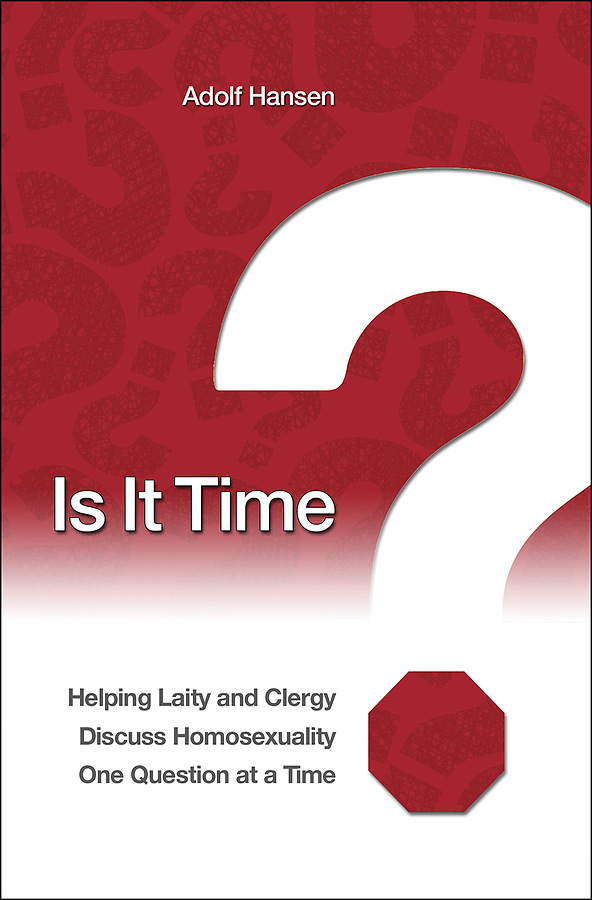
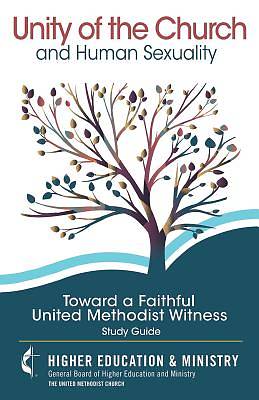
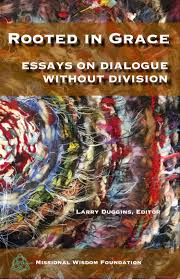
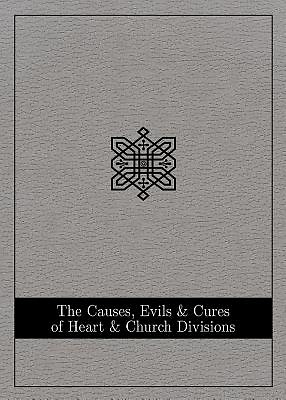
Faithful and Inclusive: The Bible, Sexuality and the United Methodist Church by Rob Fuquay. This DVD study allows you to gain an understanding of how United Methodists can be both obedient to God’s Word and fully welcoming to LGBTQ persons in the church. It is designed for participants to develop their own perspectives on the Bible’s passages related to homosexuality. Rob Fuquay creates a safe space to navigate through this thorny issue, relying on the biblical-interpretation approach of Methodism’s founder, John Wesley.
Living Faithfully: Human Sexuality and The United Methodist Church. This study will help you understand and grapple with various views about the ministry and teaching of The United Methodist Church around issues of human sexuality. Each chapter includes background on the Bible, Christian theology, history, stories from diverse viewpoints, and United Methodist structure and practice to guide reflection and conversation. This revised edition contains an updated fourth chapter that describes the outcome of the 2019 General Conference and the ongoing debates and responses to it. This book will lead you to have honest, well-informed, and grace-filled conversations with others about these matters and the calls for change. And it will help you discern, in prayer and conversation, how you can respond faithfully in love of God and neighbor.
Is It Time? Helping Laity and Clergy Discuss Homosexuality One Question at a Time by Adolf Hansen. Adolf Hansen presents questions for laity and clergy to explore as they engage in open dialogue in an atmosphere of mutual respect, even when the conversation partners disagree. The author says, “My hope is that persons who read this book will become aware of the wide variety of issues related to the subject of homosexuality; will be encouraged to reflect on each of them; will think through the meaning of whatever answers they give to the questions the book raises; will grapple with the implications of the stances they take; and will engage in conversations with others—both in a one-on-one setting and in a group.” (from the Introduction) When we do that, he argues, we can move on to the wider issues and give our full attention to the mission of the Church: to make disciples of Jesus Christ for the transformation of the world.
Unity of the Church and Human Sexuality: Toward a Faithful United Methodist Witness by The General Board of Higher Education and Ministry. This resource addresses how the church can be a witness and provide for a diversified human community. Methodism is no stranger to controversy. John Wesley addressed the contentious issues of his day and strove to hold the Methodist societies together across many lines of difference. This guide plumbs the depths of the Wesleyan heritage to enhance our faithful witness to the gospel of Jesus Christ at a time when devout followers are deeply divided. These ideas are expanded in a book based on the Colloquy on the Unity of the Church and Human Sexuality, sponsored by the United Methodist General Board of Higher Education and Ministry and the Association of United Methodist Theological Schools.
Rooted in Grace: Essays on Dialogue Without Division edited by Larry Duggins and Andrea L. Lingle. This collection of essays, liturgies, and spiritual exercises is focused on staying connected during difficult discussions. Each essay includes questions for discussion for ease of use in small groups and Sunday School lessons. While the collection was designed to be helpful in congregational discussions of the 2019 UMC General Conference and the discussion of The Way Forward, it does not specifically address questions around human sexuality. Rather, it addresses the vanishing art of disagreeing without devolving into animosity. The book will speak to all people without regard to their political party or position on human sexuality issues.
The Causes, Evils, and Cures of Heart and Church Divisions: Study Edition by Francis Asbury. As a key founder of the American Methodist movement, Asbury observed that it took only a few years for division to emerge among the most passionate and zealous followers of the Wesleyan way. So he repurposed and abridged two earlier works to create The Causes, Evils, and Cures of Heart and Church Divisions. This book was recommended for study to early Methodists as a spiritual cure for the human tendency to love self and ideas more than we love others: our colleagues, our neighbors, and our enemies. The study questions found throughout this book are suitable for cultivating spiritual formation within individuals and among a community. As you read about these causes and evils that divide our hearts from each other, nearly every individual will recognize the need for personal improvement in thoughts, words, and deeds. Includes study questions for group study.
Our Current Debate
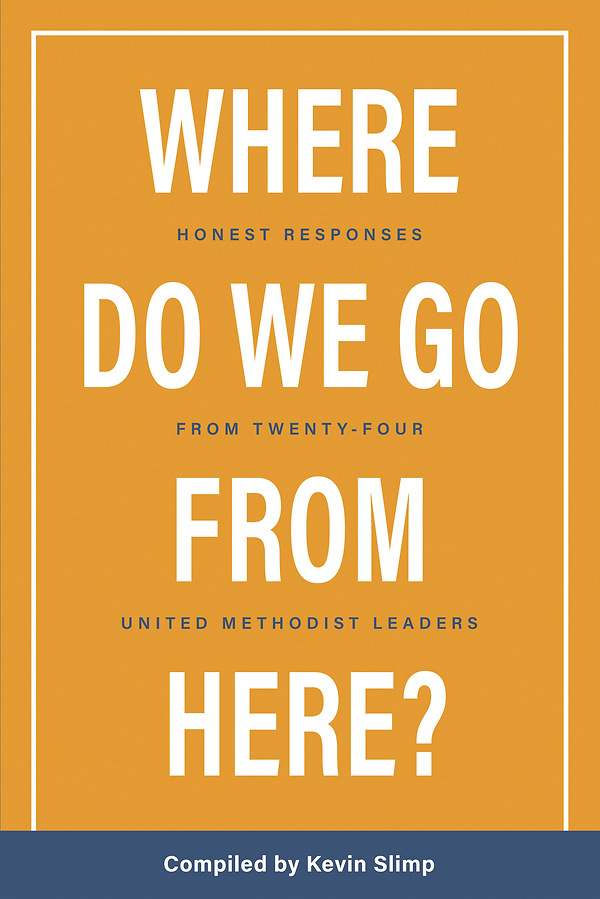
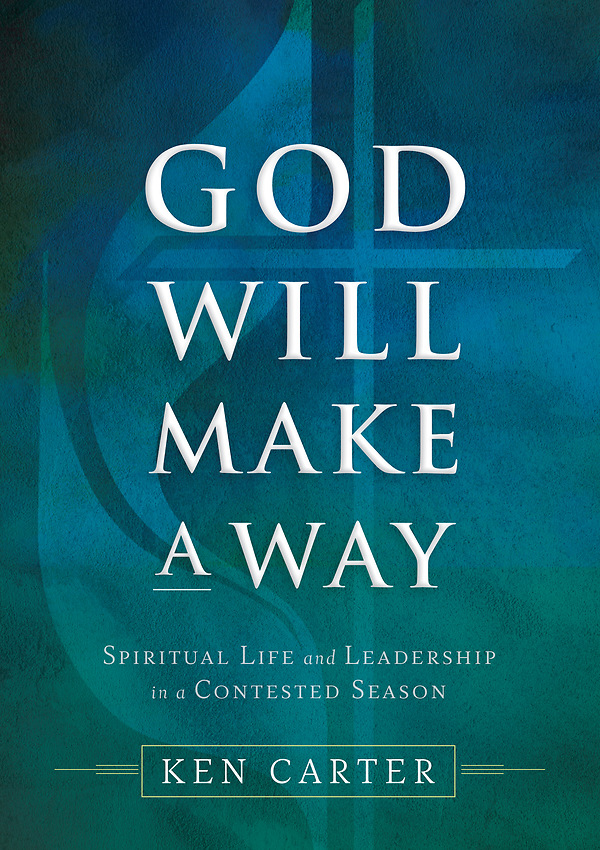
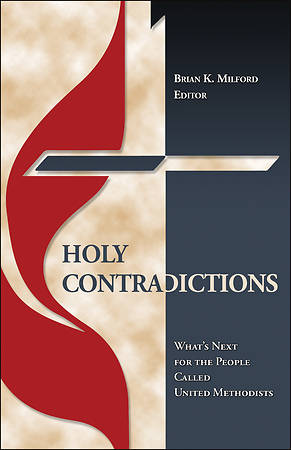
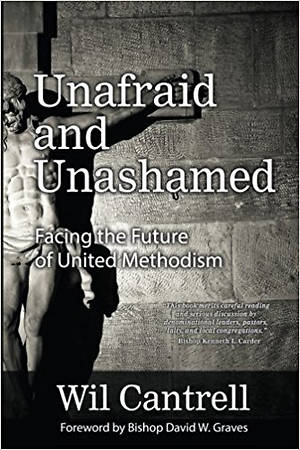
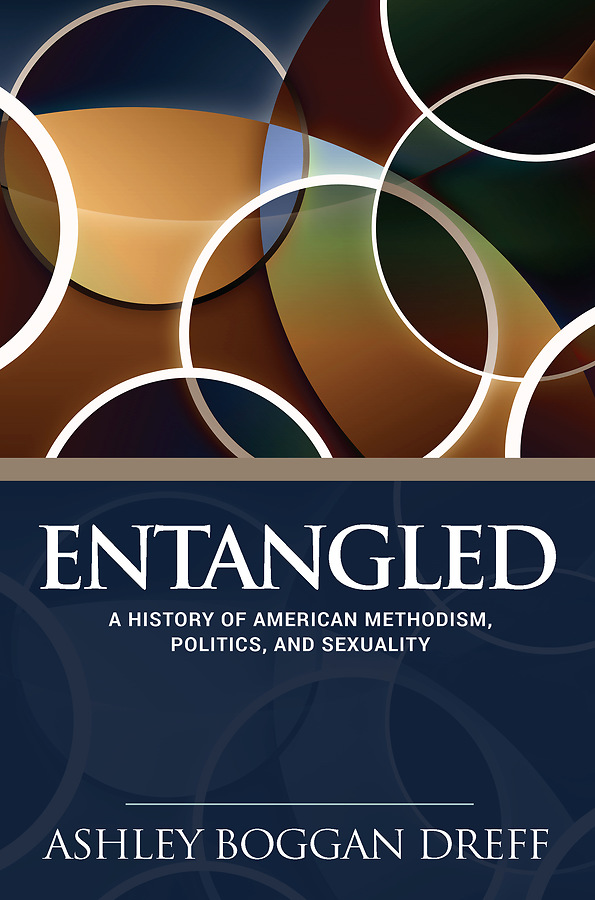
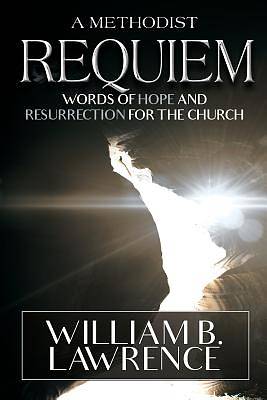
Where Do We Go From Here? Honest Responses From Twenty-Four United Methodist Leaders compiled by Kevin Slimp. Twenty-Four United Methodist Leaders, bishops, pastors, laypersons, campus ministers, students, general board directors, and others share their honest responses to the question, “Where do we go from here?” Voices from the traditional, centrist and progressive viewpoints share their thoughts on where their church is following the 2019 session of The United Methodist General Conference and where it should go from here. Thought-provoking, inspiring, and sometimes troubling, this book offers individuals and groups a place to better understand what United Methodist leaders are thinking in this crucial time.
God Will Make a Way: Spiritual Life and Leadership in a Contested Season by Ken Carter. Ken Carter shares reflections from his journey from the 2016 General Conference, through his leadership in The Way Forward, his role as Presiding Bishop, into the special 2019 Conference, and the postponed 2020 General Conference in the midst of a pandemic. The book is both a spiritual journey and an inside view of one of the most tumultuous periods of national and denominational history. Throughout, the high points are experiences and conversations between people, often from dramatically different stances, who find common ground, new understanding, and hope.
Holy Contradictions: What’s Next for the People Called United Methodists edited by Brian K. Milford. How might United Methodists bear witness to graceful and mutually respectful ways of living in the Wesleyan tradition amid enduring disagreements about same-gender relationships and related church practices? The contributors engage the question by asking themselves: How do I approach this question in light of my particular social location? What do I believe is most at stake, most at risk, and most needed at this time in the life of The UMC? How does my understanding of scripture and our theological task shape how I envision how we might best live into the future?
Unafraid and Unashamed: Facing the Future of United Methodism by Wil Cantrell. Nothing is needed more in the contentious dialogue surrounding human sexuality that threatens the unity of the United Methodist Church than a resource created to nurture the souls of all United Methodists. Through an unflinching look at the challenges facing United Methodism, Cantrell cultivates faith, respect for disparate opinions, appreciation for the Wesleyan means of grace, and commitment to the church. This book has been developed to aid local pastors in effectively communicating the issues facing the denomination in a manner that strengthens the church. It is a great resource for any United Methodist seeking a clear understanding of the challenges and opportunities before us.
Entangled: A History of American Methodism, Politics, and Sexuality by Ashley Boggan Dreff. This book maps how American Methodists have responded to sexual change since World War II. It argues that the current United Methodist impasse over human sexuality has its root in the existence of two dichotomous ideologies of Methodist history and theology—one liberal and one evangelical, which come to the foreground in discussions of human sexuality. It offers evidence about how these ideologies have sought to reconcile their sexual ethic with sexual change since the birth control movement of the 1920s.
A Methodist Requiem: Words of Hope and Resurrection for the Church by William B. Lawrence. For Christians, the word “requiem” is a voice of hope. It heralds the promise of resurrection and power of life. A requiem is not about death, rather it is a prayer that accepts the Lord’s redemptive sacrifice, trusts his resurrection, and finds abundant life. It affirms our belief that by God’s grace, we will enter a new realm of being. In this, we can be confident and so remain unshaken by the challenges we face as communities of faith and as a denomination. What we now see as our troubles can give us new opportunities to seize God’s promises and be strengthened by the mission to which God calls us. The mission of Methodism will endure. Includes discussion questions.
Being the Church Together
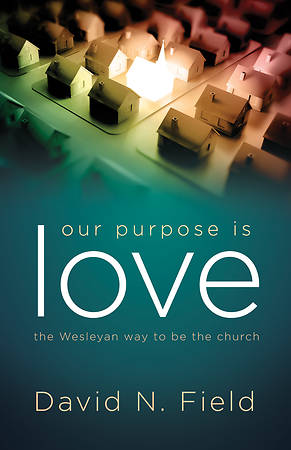
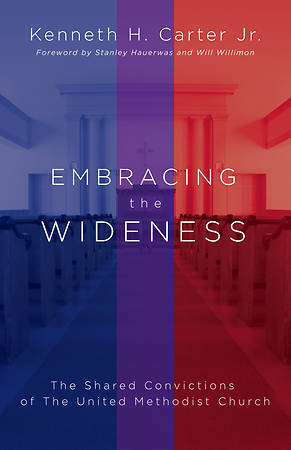

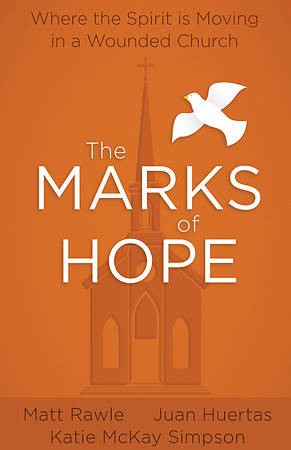
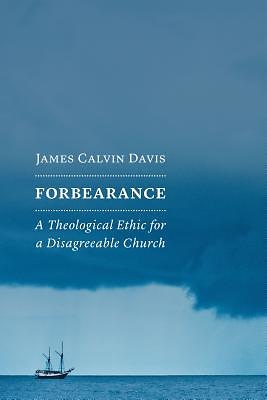
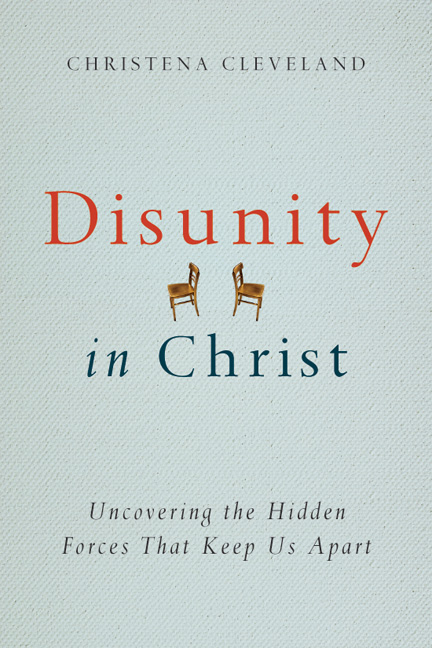
Our Purpose is Love: The Wesleyan Way to Be the Church by David N. Field. David Field presents a Wesleyan vision of the church as the embodiment of God’s love in the world and explores the implications of this vision for our life together. In this vision, the church is where we become creatures of love, learning to love God and neighbor ever more completely and authentically through the means of God’s grace. As a result, we bear witness to the world by reflecting God’s love more and more perfectly in the way we treat others and order our common life. With a special focus on the importance of unity for the church’s witness, Field invites us to consider the ways in which embodying God’s love can and should influence how we live as individuals and as communities of faith, calling us to reclaim and recommit to love as the center of who we are. A Leader Guide is also available.
Embracing the Wideness: The Shared Convictions of The United Methodist Church by Kenneth H. Carter Jr. This book contrasts a generous orthodoxy with the culture wars that seek to drive a wedge between Christians with deep faith convictions. A generous orthodoxy is possible for The United Methodist Church because scripture supports both a confessing movement and a reconciling movement. What great things could be accomplished if we rediscovered orthodoxy in service of the healing, instead of dividing, of our bodies—our churches! Such a generous orthodoxy would keep us from becoming stuck in cycles of harmful collusion and escalating conflict. Such a generous orthodoxy would know that the source of our capacity to be healed of our schisms is a miracle beyond our human power or goodness or intelligence.
Together: United Methodists of the Temple, Tabernacle and Table by Stanley R. Copeland and Scott Gilliland. The authors tell what a church has taught them through uplifting a vision to be “one diverse community, passionately engaging the Bible, uplifting Jesus in worship and loving service, and challenging in Love that which divides.” Together supports the denomination moving forward by allowing local congregations, and area Conferences, to do authentic, Christ-centered ministry in their local mission fields. Together recognizes the long-standing theological and sociopolitical diversity within United Methodism as Traditionalist (Templers) and Progressives (Tabernaclers), but we all gather around a long, broad Table that the Lord sets, and to which He invites ALL of us to feast.
The Marks of Hope: Where the Spirit is Moving in a Wounded Church by Matt Rawle, Juan Huertas, and Katie McKay Simpson. The church can be a hopeful model for the world in emerging areas of culture and ministry. Topics in this book include gender, technology, justice, mission, story, and social entrepreneurship. Each chapter concludes with a jointly written “communion” section that has ideas for working together as leaders, lay people, and congregations with practical steps to pave the way.
Forbearance: A Theological Ethic for a Disagreeable Church by James Calvin Davis. James Calvin Davis reclaims the biblical concept of forbearance to develop a theological ethic for faithful disagreement. Pointing to Ephesians and Colossians, in which Paul challenged his readers to “bear with each other” in spite of differences, Davis draws out a theologically grounded practice in which Christians work hard to maintain unity while still taking seriously matters on which they disagree. The practice of forbearance, Davis argues, offers Christians a dignified, graceful, and constructive way to deal with conflict. Forbearance can also strengthen the church’s public witness, offering an antidote to the pervasive divisiveness present in contemporary culture.
Disunity in Christ: Uncovering the Hidden Forces That Keep Us Apart by Christena Cleveland. Learn the hidden reasons behind conflict and divisions. With a personal touch and the trained eye of a social psychologist, Cleveland brings to bear the latest studies and research on the unseen dynamics at work that tend to separate us from others. Learn why Christians who have a heart for unity have such a hard time actually uniting. The author provides real insight for ministry leaders who have attempted to build bridges across boundaries. Here are the tools we need to understand how we can overcome the hidden forces that divide us.
Mission Study for All Ages
The 2022 United Methodist Women mission study focus is on community. Use these studies for adults, youth, and children to understand what it means to live in community as Christians.
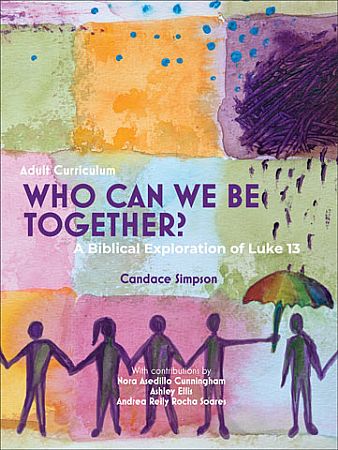
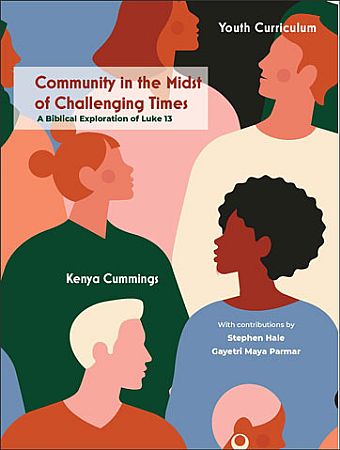
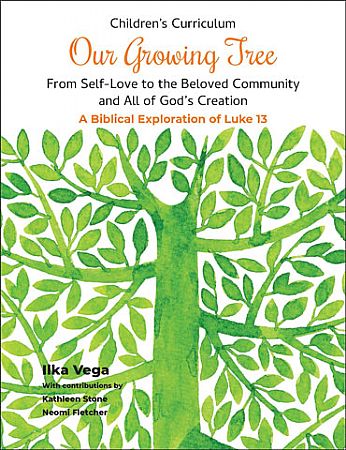
Who Can We Be Together? A Biblical Exploration of Luke 13 by Candace Simpson. This study brings participants deeper into Jesus’ teachings in this chapter of Luke to explore what it means to be in community. As the author notes, “For followers of Christ 2,000 years later, it’s important for us to sit with the range of emotions we have in response to these words. It’s not easy to build and sustain communities, especially when there are forces that drain us, exhaust us, and even push us to act uncharacteristically. And yet, we are called to act on the most ethical principles of our faith so we can witness the kin-dom of God on earth.”
Community in the Midst of Challenging Times: A Youth Curriculum by Kenya Cummings. This study brings facilitators and participants on a journey through stories that have anchored Christian communities for millennia, through both stability and times of turmoil and tragedy. Using study, prayer, reflection, and sharing, participants will examine the meanings of the kingdom of God, while beginning to utilize the language around the “kin-dom” of God. In the midst of a devastating pandemic, a divisive political climate, and economic turmoil, we will examine the dynamics of power and empire in light of the gospel. Youth will also grow in their ability to interpret scripture for today’s world, and deepen community connections through inter-generational dialogue.
Our Growing Tree: A Children’s Curriculum by Ilka Vega. This study is a journey of spiritual growth and community building that helps children recognize the diversity of their capacities, spiritual gifts, and talents as well as their responsibilities to care for one another and for all of God’s creation. Through Bible study and reflection, transformative activities, and spiritual practices, participants will find hope, joy, and empowerment in the featured scriptures; grow their spiritual gifts and talents; and find support in their journeys of self-love, building the beloved community, and stewardship of God’s creation. Children will also be encouraged to develop their capacity to interpret scripture in multiple ways and deepen their learning through intergenerational conversations and connections.
NC Conference Voices
These resources are written by members of the North Carolina Conference.
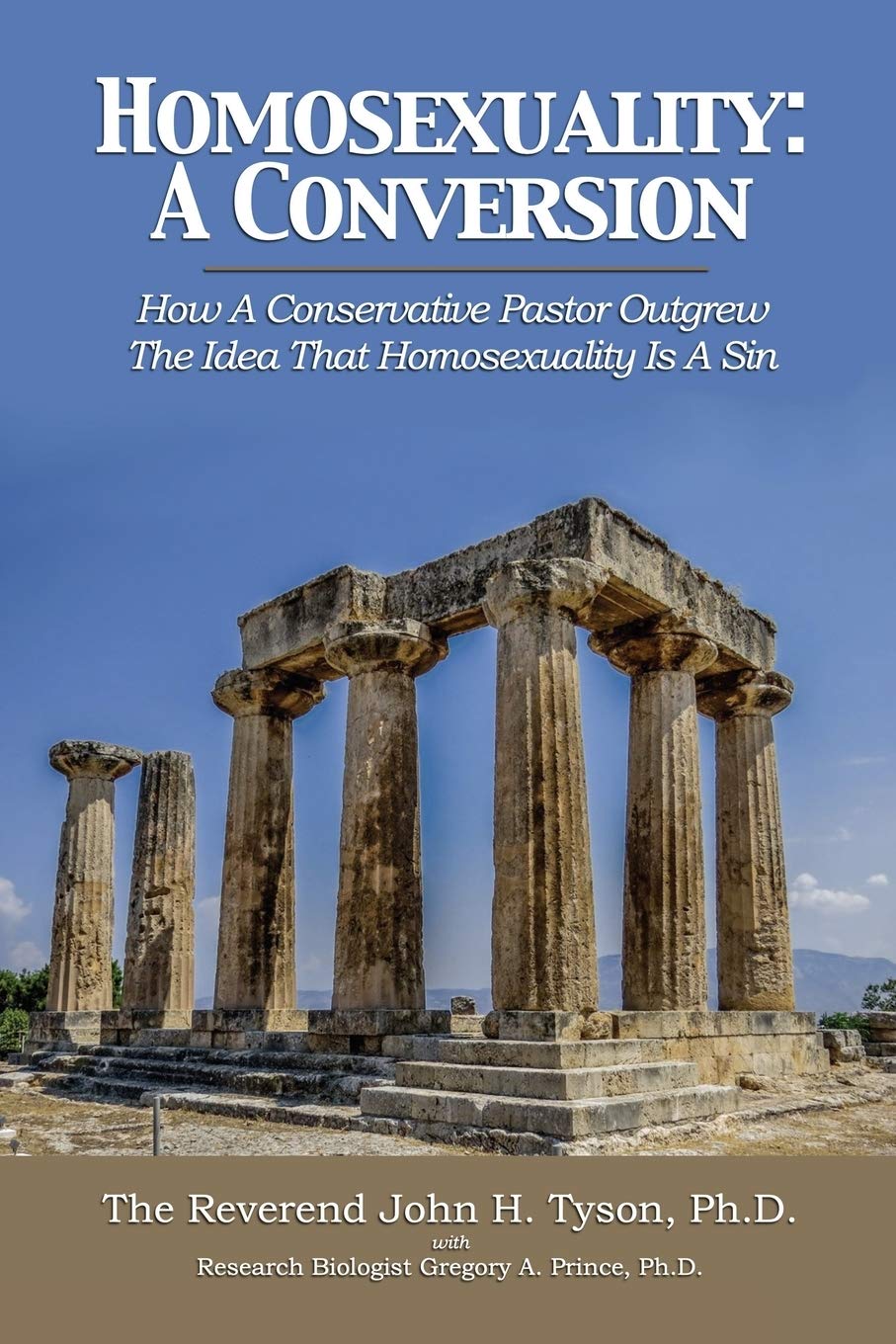
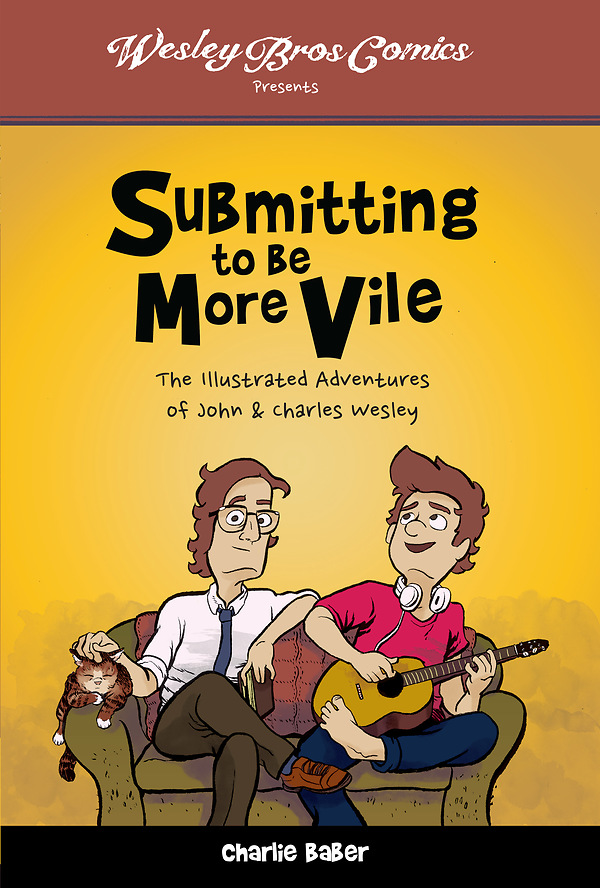
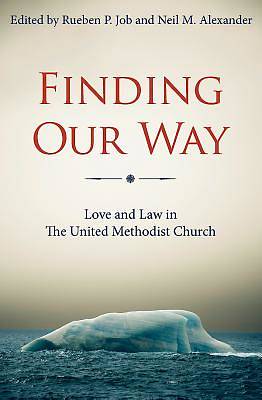
Homosexuality: A Conversion: How a Conservative Pastor Outgrew the Idea that Homosexuality is a Sin by John H. Tyson with Gregory A. Prince. This book traces a growing understanding of the interplay between God’s love, scripture, the Church, and homosexuality. Although it isn’t a science, psychology, history, or biblical studies book, it touches on those disciplines. The renowned medical researcher, Dr. Gregory Prince, wrote the scientific portion of Chapter 5, “Born that Way.” There, you will find the latest information about genetics as it relates to sexual orientation and identity. The new scientific information on this topic is important, and is placed within a theological context. The central message of this book is that God wants every LGBTQI person to know of God’s tender and seeking care for you. With discussion questions at the end of each chapter, this is an excellent resource for Bible study, group discussion, and General Conference developments.
Submitting to Be More Vile: The Illustrated Adventures of John & Charles Wesley by Charlie Baber. To say Charlie Baber teaches Wesleyan theology, history, and practice unlike anyone else is an understatement. Through his Wesley Bros Comics, he created “webcomics”—an online world where historical church figures all exist at the same time…our time. In Submitting to Be More Vile, Baber collects his comics in printed form and includes group-discussion guides that make the book perfect for youth groups, adults, and college/seminary students. Those new to the Wesleyan tradition will find Baber’s style easily accessible and those who have a strong United Methodist background will find themselves chuckling at his unique approach.
Finding Our Way: Love and Law in the United Methodist Church edited by Rueben P. Job and Neil M. Alexander. This book is authored by several United Methodist bishops including former North Carolina Conference Bishop Hope Morgan Ward. These writers enunciate and clarify pathways that represent faithful, responsible, and constructive ways forward through the current controversies. Each bishop articulates a prescription for moving through current conflict about homosexual practice, same-gender unions, qualifications for ordination, and maintaining the “good standing” of elders.
Sexuality, The Church, and Our Mission by Dennis Peay. Rev. Dennis Peay of the NC Conference created and taught this bible study to Bethel UMC and is now sharing it with the rest of the conference. The 8-session study includes PowerPoint slides, relevant passages of the Book of Discipline, and an invitational letter. In the letter, Peay describes this study, “We will gather at the table to explore the Word of God along with the church’s voice as we discern how we continue in the work of making disciples of Jesus Christ for the transformation of the world.”
Plea for Unity. The Plea for Unity was presented and affirmed with near unanimity by the North Carolina Conference on June 12, 2014. It concludes with, “By the grace of God, with the guidance of God, and under the judgment of God, let us United Methodists meet this test as one church — and remain one church — even as we work through strong disagreements, and discern Christian truth, about human sexuality.”
Tuesdays at the Table
It is important for the people called United Methodists to explore and understand who we are, what we believe, and how we live as people of God today and into the future.
To help us think through these issues, the Connectional Table, in cooperation with our general agencies, hosted a series of discussions with United Methodist theologians and leaders that help us better understand our faith, our church, ourselves. These videos are now available to watch and share along with discussion guides.
Additional Resources
The NC Conference has many more resources that you can borrow related to these topics. View the complete lists in these pathfinders:
Request These Resources
These resources can be borrowed for free by anyone involved with a United Methodist Church in the North Carolina Conference. We will mail them to your home! All you need to do is fill out the Resource Request Form.
Featured Photo illustration by Kathleen Barry, UMNS

